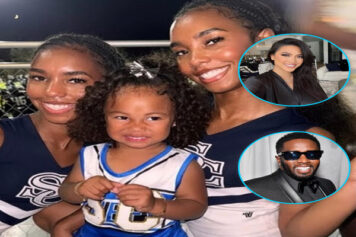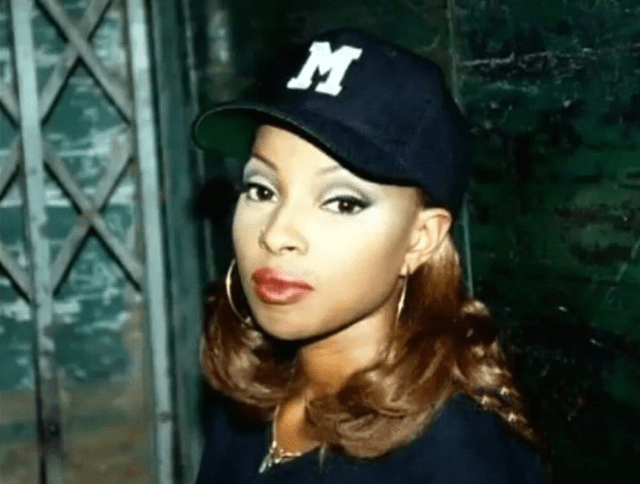Earlier this week, I sat in a darkened movie theater in downtown Washington, DC, hungrily soaking up the vibrant energy of the hilariously playful, thought-provoking and outstanding Dramady (Drama/Comedy) Dope, a film which Sean Combs, aka Diddy aka P Diddy aka Puff Daddy aka Puff aka Puffy, served as a co-Executive Producer.
Revolt Films, one of Combs various business enterprises, was among the production companies involved in the movies evolutionary life-cycle that saw it morph from a fresh idea to a refreshingly poignant and important piece of work that needs to be seen, enjoyed, dissected, debated and appreciated.
Dope is part cultural expression, part celebration, part critique and a definitively whole, firm repudiation of the previous myopic and stereotypical presentations of the Hood Movie tapestry. Its soul bubbles with youthful exuberance, mischievous intelligence and courageous self-assurance.
The film takes the somber, depressing and predictable narratives of the genres identifying works like Menace II Society, Juice and Boyz n the Hood, and flips it, delivering something so unique, distinctively honest, robustly spirited and bouncy that a simple, subtle piece of dialogue spoken by the storys main character, Malcolm Adekanbi, makes you want to spontaneously jolt upright like Prince Hakeem at a St. Johns hoops game in Madison Square Garden and scream to everyone within earshot, YES, IN THE FACE!!!
When Malcolm says that he and his tight crew of ghetto nerds like to do some things that white people enjoy, like getting good grades, its enough to tickle your sensibilities in affirmation, especially if youre from a neighborhood like the one in which the film is set, The Bottoms in Inglewood, California, one of Americas urban landscapes and ignored pockets of despair that only become flash-points in the national narrative when incidents of police brutality flare up.
As the credits rolled during the films conclusion, while Malcolm (played with a dazzling sincerity and skillful luminosity by the young actor Shamiek Moore) executes a 90s Hip Hop dance routine that would make Rosie Perez jealous, I found my mind drifting toward Combs recent flash-point across the American consciousness his arrest after a fight with an assistant football coach at UCLA, where his son Justin is a redshirt junior on the team.
I was struck by the swift initial reactions and judgments condemning Puffy for the confrontation. The responses followed a predictable pattern. Without knowing the details, the majority of the public sided with the coach, the authority figure, assuming that Combs was the ultimate control freak with unrealistic expectations and a dissatisfaction with his sons college athletic trajectory.
But why should we automatically assume that Diddy was the one in the wrong? Why do most people instinctively jump to the coach’s defense, without stepping aside and waiting for the back story to emerge before rendering an uneducated verdict?
I started to think about the character Malcolm in Dope, and how circumstances dictated his response to certain situations that, devoid of context, would be viewed as clear-cut violations of the law. But when you dig under the surface, you see that there was a cause and effect that caused him to counter with rejoinders and retorts that were not only justifiable, but necessary.
Malcolm is constantly bullied and the specter of having his Air Jordans and bicycle stolen, along with his beliefs and eccentric equanimity consistently assaulted, is omnipresent. Eventually, he tires of the abuse, and when caught at the intersection of frustration, disenchantment and hostility as his antagonists push him over the edge, he responds by producing something frightening, proving that the lines have blurred, and hes ready and willing to cross them to preserve his self-interests.
In that, I drew a parallel to Puff.
Im willing to clearly admit that while some coaches espouse the tough-love philosophy, there are others who cross the line into bullying and abuse.
I thought of former Rutgers basketball coach Mike Rice kicking, punching and denigrating his players, of Bobby Knight choking one of his, and other high profile incidents involving football coach Mike Leach and others, where coaches physically and psychologically abused the young athletes whose families they inherently promised to look out for and take care of while they attempted to navigate the college minefield of athletics, campus celebrity and academics.
If Mike Rice or Bobby Knight had done that to my child, they wouldve been stepped to with the stealth of Mike Tyson in the late 80s, no question asked. If it was your child, what would you have done?
Most people are not familiar with the story of the Chicago Bears Marquess Wilson, who quit the team at Washington State University due to the coaching staffs harassment and preference for what he once termed “…belittling, intimidation and humiliation.”
Some mental midgets will call it tough love, but thats not what it is. Like Wilson wrote in his letter to Cougar Nation, explaining why he was leaving the school’s football program, its abuse, plain and simple. And all abuse – physical, mental and psychological – has negative personal reverberations for those that experience and internalize it.
So lets consider, since not many people want to tackle this part of the scenario, if UCLA assistant coach Sal Alosi was being an abusive bully with Justin Combs. The convenient discussion is to simply say that Puffy was arrested and charged with battery, assault with a deadly weapon and making terroristic threats.
But what could cause him to react in the way that he did? What was the history between Alosi and Justin Combs? What were their interactions like over the past three years? What was the nature of their relationship? Was it a mentor-mentee dynamic? Or was it something else, something sinister like the bullying that we claim should not be tolerated on an elementary school playground?
Weve heard that Justin Combs was thrown out of practice, the short version being that he was kicked out of a drill for a lack of effort. Weve heard that Puffy is the worst kind of helicopter parent, one who overreacted with a violent temper and embarrassed both the team and his son. Just look at his history people say, half-joking about nightclub shootings and fights with rival recording industry execs.
But lets step back from the lazy narrative to consider something. What if Sal Alosi, as some suggest, had been bullying Justin Combs for years, smearing him within the team family for his fathers wealth and accomplishments in a bizarre reverse prejudice toward celebrity and the Harlem-to-Hollywood American Dream and Horatio Alger-like narrative of Puffys life?
What if, as some suggest, Alosis behavior instigated the confrontation, what if his remarks exacerbated it? What if it’s true that he has a history of being a perpetual line-stepper? What if he indeed embarked on a campaign of psychological warfare against Justin Combs, who is an alleged Honor Roll student on track to graduate with a 3.75 GPA?
What did Alosi once hope to accomplish by putting a picture of Justin with his father and Ben Stiller, while sitting courtside at the NBA All Star game, on every gym monitor in the UCLA facility for 24 hours?
I dont have the answers, nor am I privy to the details. But I can say that not every coach is Bill Walsh or Phil Jackson, not every coach has compassion, not every coach honors their commitments to the young athletes that come under their tutelage.
Some coaches never outgrew the schoolyard bully mentality, and dont deserve to be coaching college athletes. Some of them deserve a response that isnt pretty.
My grandmother often told me that in life, you will be forced, whether you like it or not, to punch somebody in the face in order to defend yourself, protect your children and family, or to stand up for what is right.
Im not saying that what Puffy did was right. What I am saying is that it possibly could have been. We dont know the story, but to automatically assume that hes wrong, and the coach, because hes a coach, gets the benefit of the doubt, is shallow and incorrect.
Lets not rush to judgement. Lets wait until the facts come out. In the movie Dope, Malcolm had to navigate a slippery slope. Its one that most refuse to understand, but its very real.
What’s also very real is that Diddy might have found himself at another slippery slope, the point of no return where he’d sat by long enough, and finally felt that something needed to be done. As a parent, your instinct is to protect your child, no matter if your net worth is a week’s salary or half a billion.
If Mike Rice or Bobby Knight had beaten, belittled, kicked and choked your child, if theyd suffered emotional abuse at the hands of the men that were entrusted to, how would you respond? You cant answer unless youve been there.
Sometimes enough is enough. Sometimes people talk too slick. Sometimes people need to be dealt with. Cross that line with my kid and theres gonna be some furniture moving around. I doubt Im the only one.
If you automatically assumed that the coach was good and that Puffy was to blame, you might want to reconsider. Again, I dont know what happened and you might hate on me for bringing this all up. But Im at least willing to consider that theres another side to this story.
At one time, a coach and his tactics went unquestioned. To quote my man Biggie, things done changed.
There are some scenarios where Puffys reaction was not warranted. And there are others where its completely understandable and justified. Its a slippery slope, but one that needs to be looked at from every angle, not simply the convenient one.
Diddy warned us long ago that, “You can hate me now…But I won’t stop now!” In the long run, it was All About the Benjamins, but the main objective was always Victory.
Mo’ Money may bring Mo’ Problems, especially for his kids, but mess with them at your peril. Because the ultimate shot-caller only knows one thing, and that’s how to simply win, win, win.
Can’t nobody hold him down, especially an abusive coach.


